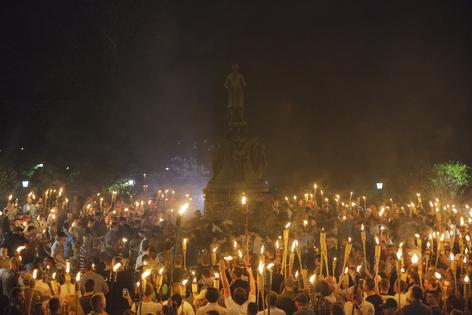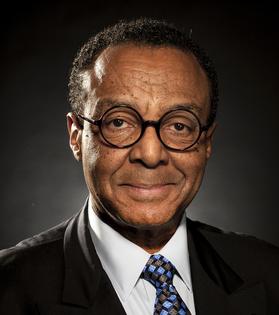Another Way to Fight Violent Hate Groups? Take ’em to Court
Once there was a time when the very idea of suing a hate group like the Ku Klux Klan for damages sounded as plausible as punching out a thunderstorm, until some folks in Alabama did it in the 1980s and won.
This week another civil court victory against organized haters has been awarded. A Charlottesville, Virginia, jury on Monday awarded millions of dollars in damages against white nationalist leaders for violence that erupted during the 2017 Unite the Right rally in that university town.
Then-President Donald Trump, you may recall, found “some very fine people on both sides” of the rioting that broke out and ended in the death of one anti-racist protester, Heather Heyer, and injuries to dozens of others.
But the jury awarded slightly more than $25 million in damages to nine people on only one side who were physically or emotionally traumatized by the events of that day. The defendants included James Alex Fields Jr., of Maumee, Ohio, who is now serving life in prison for killing Heyer and injuring others in a peaceful crowd of protesters he rammed with his car.
The rest of the defendants tried their best to distance themselves from Fields, claiming they didn’t know him and only resorted to violence after they or their associates were attacked.
Here we go again. In the end, the self-defense defense didn’t work any better for the Charlottesville defendants than it did for the three white men found guilty Wednesday in the death of Ahmaud Arbery, an unarmed Black man who had been jogging through their Georgia neighborhood.
Yet, some people quite reasonably raise the question of free speech. Don’t the haters have a First Amendment right to hold a rally and give speeches, even if the speeches are full of hate?
“Their entire case is based around this concept that, like, we’re bad people because of the things we think, that are legally protected speech,” said defendant Matthew Heimbach, a far-right leader with reported ties to far-right factions in Eastern Europe.
Not quite. You can’t go to jail for what you’re thinking, as an old song goes. But you can get in real trouble for what you do. With witnesses, video and audio, the plaintiff’s lawyers argued that a web of communications and plans by the defendants amounted to a conspiracy to commit or inspire racially motivated violence that was liable under Virginia law.
The defendants also included former alt-right leader Richard Spencer, Unite the Right rally organizer Jason Kessler and Christopher Cantwell, dubbed the “crying Nazi” after sharing a video that went viral of himself weeping. Sniff, sniff.
But the history of the law under which the Unite the Right allies were sued is no joke. It goes back to a 1981 case that bankrupted the United Klans of America and put other hate groups on notice. Even if they avoid getting convicted of criminal charges, they can still be sued — even to a point that cripples their operations.
The case goes back to the lynching in 1981 of Michael Donald, 19, a Black youth who was abducted at random while walking to a store by members of the United Klans of America. They were angry that another Black man had been spared by a hung jury in the killing of a white police officer. (He was later found guilty.)
The lynching was aimed at terrorizing the Black community. So was a cross other Klan members burned at the Mobile County, Alabama, courthouse that evening.
After local police failed to take the case very seriously, the victim’s mother, Beulah Mae Donald, and the Southern Poverty Law Center filed a civil suit against the Klan organization.
The $7 million verdict they won in 1987 drove the United Klans of America into bankruptcy. To help settle their debt, the group turned over its headquarters to Beulah Mae Donald.
It was a courtroom drama worthy of Hollywood. Like other heroic moms in the civil rights movement, Beulah Mae Donald stuck to the case until some measure of justice was won — and, in the spirit of an old civil rights movement motto, she “made a way out of no way.”
========
(E-mail Clarence Page at cpage@chicagotribune.com.)
©2021 Clarence Page. Distributed by Tribune Content Agency, LLC.
(c) 2021 CLARENCE PAGE DISTRIBUTED BY TRIBUNE MEDIA SERVICES, INC.










